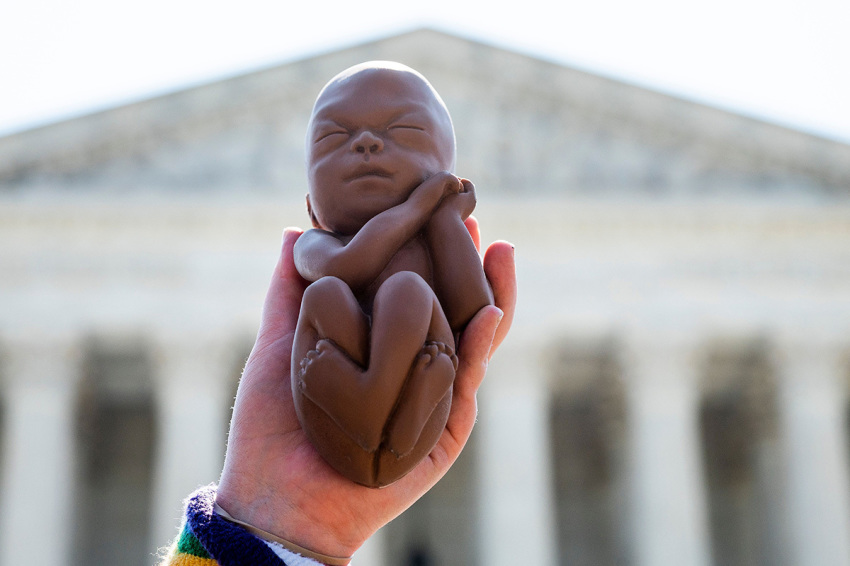Arkansas Supreme Court rejects ballot initiative to enshrine abortion as constitutional right

The Arkansas Supreme Court has narrowly rejected a pro-choice ballot initiative to enshrine abortion under certain circumstances as a state constitutional right.
In a decision released Thursday, the court ruled 4-3 against a petition by Arkansans for Limited Government for a referendum on the November ballot. The issue is whether the organization has collected enough signatures from certified canvassers.
Justice Rhonda Wood authored the majority opinion, concluding that "the petitioners failed to comply with the statutory filing requirements for paid canvassers."
"That statute was inapplicable to volunteer canvassers. As such, we ordered [Arkansas Secretary of State John Thurston] to count the signatures from volunteer canvassers, but we do not order him to count the signatures from paid canvassers," Wood wrote.
"Because the number of the initial count of signatures fails to meet the facial validity threshold required by law, we deny further relief."
The justice wrote that Thurston "correctly refused" to count the signatures from paid canvassers because the sponsor "failed to file the paid canvasser training certification" as required by law.
Justice Karen Baker wrote one of the dissenting opinions, believing that "the majority has reconfigured the relevant statute in order to cater the initiative process to the preference of the respondent while this process is the first power reserved for the people."
"The majority deliberately bypassed the issue concerning who has the authority to sign the certification even in light of the allegations of disparate treatment that have been made regarding the respondent's treatment of three initiative petitions — the current petition and two others in circulation during this election cycle," Baker continued.
"Even a cursory review of how the present ballot initiative has progressed since its inception demonstrates that both the respondent and the majority have treated it differently for the sole purpose of preventing the people from voting on this issue."
ALG released a statement arguing that the ruling silences "more than 102,000 voters who exercised their right to direct democracy."
"Despite this setback, our fight is not over. We remain committed to ensuring that Arkansas women have access to safe healthcare and the autonomy to make decisions about their bodies without government interference," the group stated.
"This fight has ignited a movement among Arkansas women. We are outraged, we will not back down, and we will remember this in November."
Arkansas Attorney General Tim Griffin, a Republican, called the decision a "win for the rule of law in Arkansas and for those who have followed the rules for years to participate in the state's ballot initiative process."
"Changing the Arkansas Constitution involves a rigorous process requiring strict adherence to the law," Griffin said in a statement. "The Arkansas Supreme Court confirmed today that the abortion advocates failed to follow the law that other ballot committees had successfully followed for over a decade since Governor Mike Beebe signed the law governing paid canvassers in 2013."
ALG campaigned to include the proposed state constitutional amendment to the November ballot that would, among other things, prevent the state from restricting abortions up to 18 weeks into a pregnancy.
After the amendment language was rejected twice in January, ALG got the proposal certified, provided that the group could get enough signatures from Arkansans.
As part of these efforts, the organization received over 100,000 signatures, well above the minimum 90,704 needed. However, Thurston rejected ALG's proposed amendment in July, arguing that the group didn't submit a statement identifying all of their paid canvassers by name and a signed statement indicating the sponsor explained to paid canvassers the state law requirements for obtaining signatures.



























